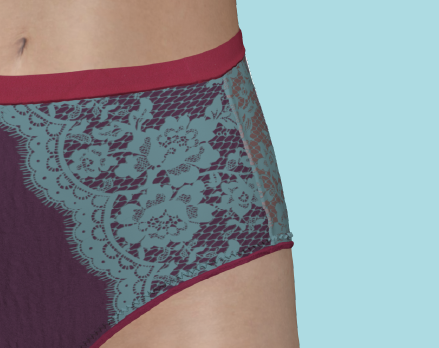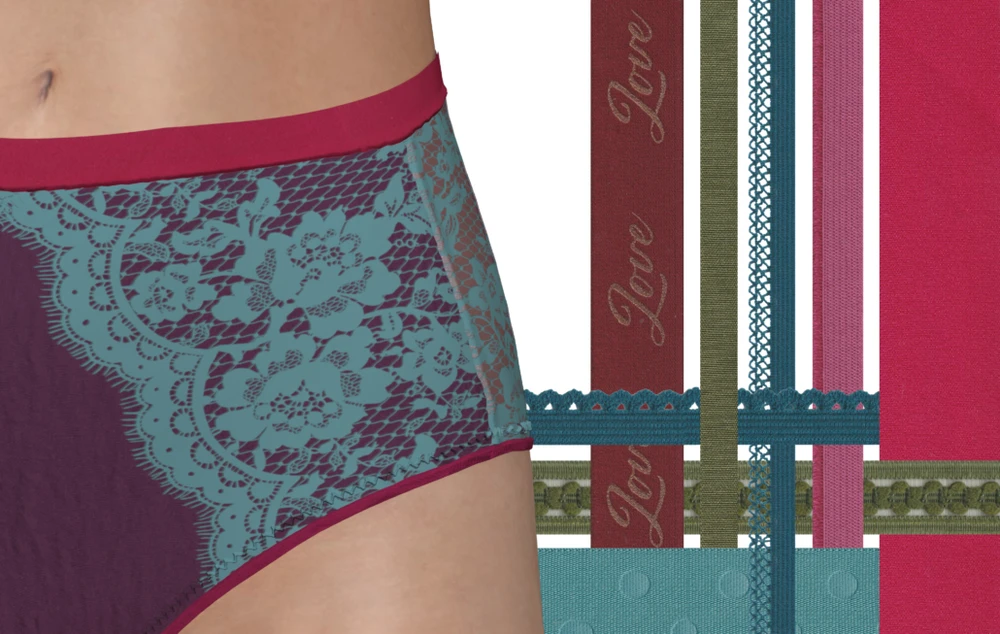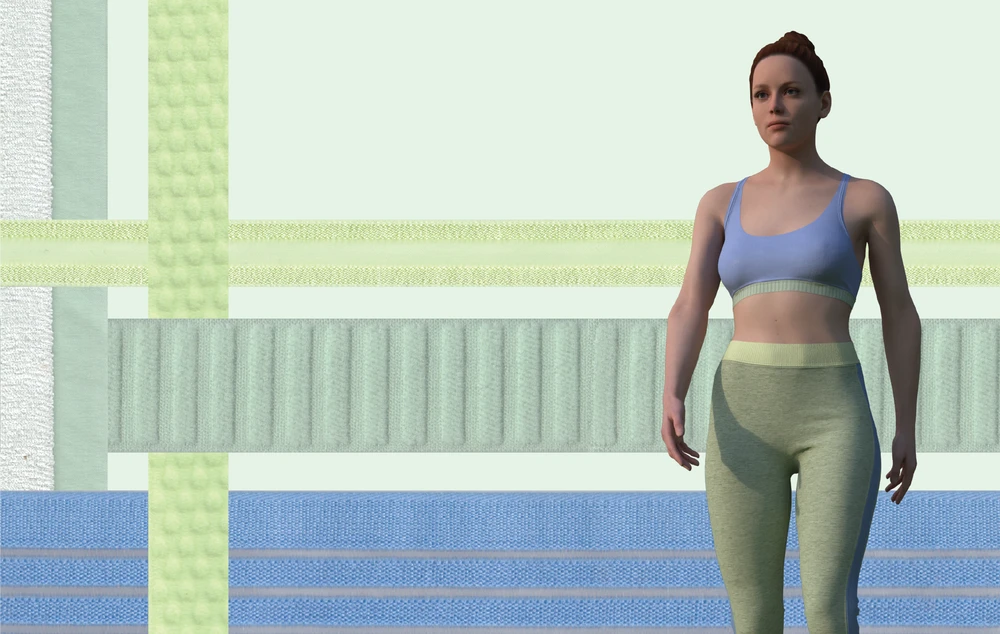Norlanka X Browzwear
To get underway with 3D adoption and embark on its digital journey, the company decided to adopt Browzwear’s fashion design solution VStitcher.
February 6, 2021


Originating as a world-class manufacturer of intimate apparel elastic, Stretchline is now the world’s largest provider of narrow elasticated fabric and a leading supplier of covered elastomeric yarn, textile coating, and bonding solutions for some of the worlds biggest apparel brands. With a diverse range of products, the company creates elastic fabrics for outerwear, activewear, medical applications, swimwear, and more. Stretchline prides itself on being committed to innovation as a way to drive sustainability and speed time to market.
As a company that produces an extensive range of detailed elastic products throughout the year, the design and technical teams have always kept an eye out for new ways to make their processes faster and more efficient, from streamlining approval cycles to enhancing showcasing capabilities. During the company’s search for a digital solution, the pandemic hit in late 2019, with departments spread across the world, delayed postal services, and limited material availability, Stretchline was faced with a new set of challenges.
“We began to think about how we could elevate our services and offer more variety and choice to our customers, but also navigate through the pandemic,” says Sophie Beet, Design Manager at Stretchline. Although the technical teams had already started looking into the possibilities of different digital solutions, it was at this point that it became imperative to remaining as close to business as usual. “Not only we were already aware of the need to incorporate 3D, but our customers were already on board,” says Sophie. After reaching out to customers who had already welcomed digital tools and taking a closer look into how 3D could bring about the best results from ideation to merchandising, Stretchline teamed up with Browzwear to begin their accelerated digital transformation journey. 
Elastic in itself is complex, and each product entails an extensive amount of intricate detailing and texture, which is often hands-on and time-consuming to accomplish. Therefore, not only would a digital alternative enable the company to speed up the preparation time, but they would also be able to offer their customers an entirely new visual experience. With its forward-thinking mindset, the company quickly came together to learn how 3D would be integrated from the design to production process and see how they would translate the digital fabrics into physical products. The design team predominantly focused on applying the newly introduced digital tools to create an online version of their seasonal catalog. Whereas in normal circumstances, the catalog would be an in-person presentation. The team was eager to continue their launch digitally and therefore not delay any of the selling processes.
“When incorporating 3D tools into our catalog, we could showcase a lot more design variations per product. For instance, logos in different types of fonts, placements, and the elastic in 20 different colorways,” says Sophie. To take this a step further, the design team began to use 3D to interact with customers, communicate their designs, and carry out sample revisions digitally. Whereas previously, the sampling process involved creating 20 different yarn dyes, taking up 20 machines, which saw lead times of 4-6 weeks, the team was able to carry it out in just a couple of days by utilizing 3D samples. As Sophie notes, “by shifting to digital, not only are we able to speed up the sampling process, we’re able to reduce textile waste drastically, which is so important to us as sustainability is a core value for Stretchline.”
For the design team, creating garment samples in 3D clothing design tool, VStitcher as opposed to physically is not just about showcasing a flawless image. The software accounts for the fit and fabric analysis, allowing them to see exactly how the product will look in real life. Any design faults can be identified early on in the process and amended before the product is sent to production.

Although the company is in the early stages of its digital transformation journey, the results have been remarkable in such a short amount of time. “Since starting our journey just over six months ago, I’m proud to see just how far we have come and how we have developed the level of texture and detail that we can now visualize throughout the design process,” says Sophie. Before implementing 3D, much of the day-to-day physical tasks involved in finalizing and tweaking details such as logos would often be time-consuming and resource-intensive. However, by utilizing true-to-life visualization tools, there is no longer the need to start from scratch for each adjustment, cutting down the time spent and reducing the associated waste. When it comes to showcasing digitally, the team has brought immense value to their customers and elevated their buying experience by sparking their imagination with a much wider variety of colors and styles for each product. Not only are customers able to see more variation, but they are also able to clearly visualize each and every detail, from the positioning of the artwork to the exact composition of the fabric before manufacturing. In fact, customers that have already purchased digital pieces before seeing the physical product found an exceptionally close resemblance between the two, giving them further confidence to continue moving forward with 3D.

Following the initial success of 3D implementation, Stretchline has already prepared 3D trims for the next two seasons and is gearing up for a digital future to solidify and expand its usage across the overseas design teams. “There is so much room to grow,” says Sophie when discussing plans for the year to come. “In this day and age, 3D seems like the most logical way to go. For 2021, we hope to build our own digital elastic library to create even more realistic digital prototypes that we can incorporate into our seasonal catalog ,” says Sophie.

Faster and more efficient approval cycle

Enhanced visualization throughout the design process

Digital showcasing with a wide variety of styles and colors

Drastic reduction of textile waste
“By shifting to digital, not only are we able to speed up the sampling process, we’re able to reduce textile waste drastically, which is so important to us as sustainability is a core value for Stretchline. “

To get underway with 3D adoption and embark on its digital journey, the company decided to adopt Browzwear’s fashion design solution VStitcher.
Halti began its digital transformation journey by incorporating 3D into their design workflows for base layers and t-shirts.
The team at Jinga was able to restructure the design according to the stress and tension maps in Browzwear's 3D fashion design software, VStitcher.